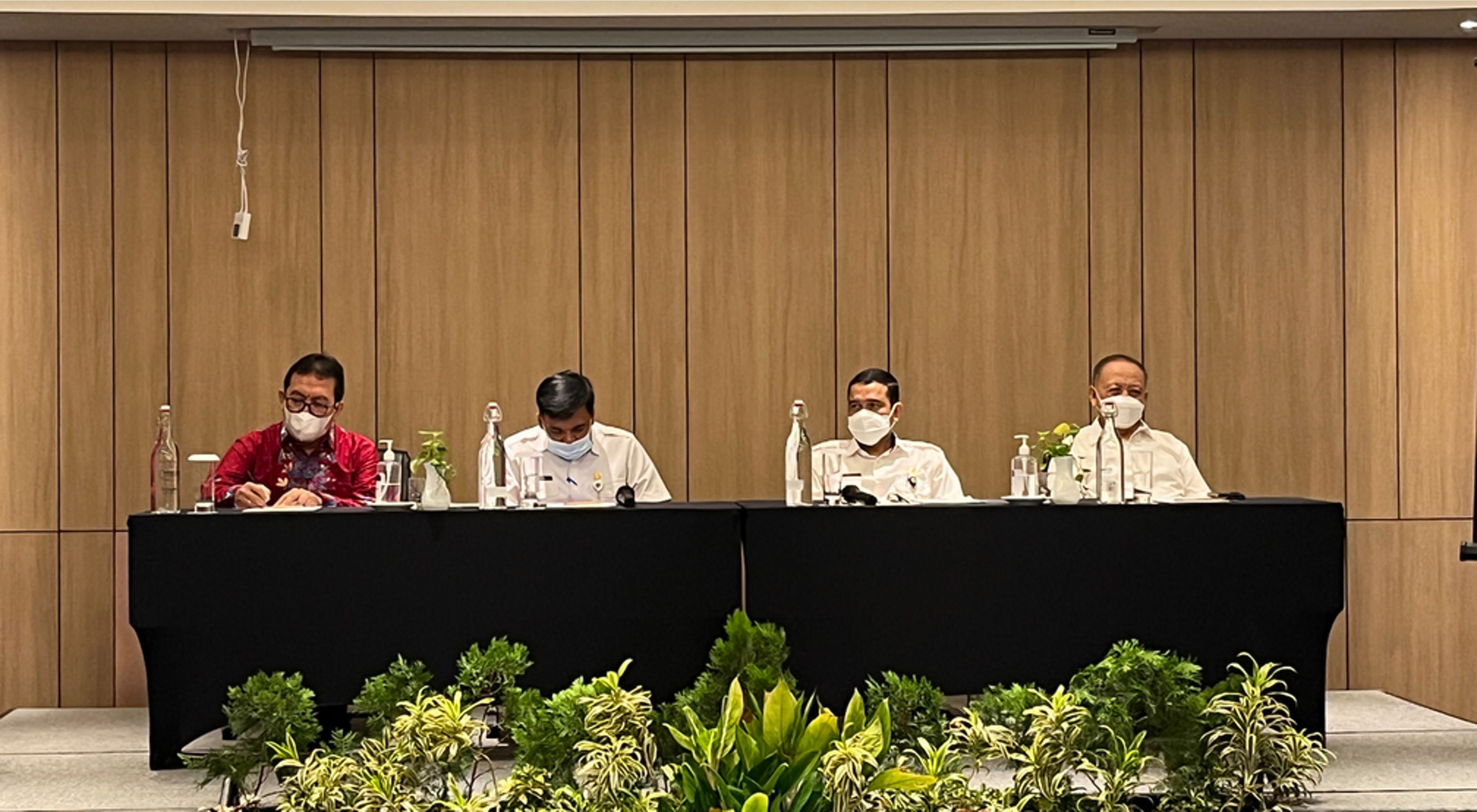Media Contacts
-
Retno Dianing Sari
Content and Publication Specialist YKAN
Email: Retno.dianingsari@ykan.or.id
the East Kalimantan Provincial Government received a visit from the Central Kalimantan Provincial Government. "Today's activity is our effort to learn how to manage the Essential Ecosystem Areas in East Kalimantan," said Secretary of the Environment Agency (DLH) of Central Kalimantan Province Mathius Hosang during the Wehea-Kelay Learning Visit for Essential Ecosystem Areas (KEE) at the Mercure Hotel Samarinda.
For two days (3-4 August 2022), representatives from Central Kalimantan discussed, shared experiences, and learned about the management of the Essential Ecosystem in East Kalimantan. Those who attended represented the DLH of Central Kalimantan Province, DLH of Gunung Mas Regency, DLH of Palangka Raya Municipality, DLH of Pulang Pisau Regency, Forestry Service of Central Kalimantan Province, Central Kalimantan Natural Resources Conservation Center, Kahayan Tengah Production Forest Management Unit, and Borneo Nature Foundation. "We see the efforts done in KEE Wehea-Kelay; can be applied in the Rungan-Kahayan Landscape," said Mathius.

The Rungan Kahayan Landscape is located between the Rungan River and the Kahayan River. This landscape includes three administrative areas: Palangka Raya Municipality, Pulang Pisau Regency, and Gunung Mas Regency. In 2017, the Borneo Nature Foundation initiated the conservation of orangutans in the Rungan Kahayan Landscape in collaboration with stakeholders. The team surveyed the distribution of orangutans in an area of 104.8 km and recorded 1,978 orangutan nests. The team also found the potential presence of primates in six village forests in Pulang Pisau Regency. Apart from orangutans, also were found slow lorises (Niycticebyus sp), proboscis monkeys (Nasalis larvatus), sailors (Presbytis comata), gibbons (Hylobates albibarbis), and long-tailed monkeys (Macaca fascicularis).
Based on the survey results, the Central Kalimantan Provincial Government encourages the Rungan-Kahayan landscape to become a critical ecosystem area for wildlife corridors because orangutans are still found outside conservation areas, such as in peat swamp-protected areas. This situation is similar to what happened in the Wehea-Kelay Landscape, East Kalimantan, where forestry and plantation concession holders surround the orangutan's natural habitat. "We want to know how to approach this landscape partnership in Wehea-Kelay, how we can invite multi-stakeholders to commit," said Chief Executive Officer of Borneo Nature Foundation Juliarta Bramansa Ottay.
Essential Ecosystem Areas (KEE) are ecosystems outside conservation areas that are ecologically important for biodiversity conservation, which includes natural and artificial ecosystems inside and outside forest areas.
The Wehea-Kelay KEE Forum is a multi-stakeholder forum to manage the 532,143-hectare Wehea-Kelay Landscape. Twenty-three related parties have joined, from the government, academia, companies holding plantation and forestry concession permits, Yayasan Konservasi Alam Nusantara (YKAN), and the Wehea Dayak Community.
"Until now, we have decided yet to bound the area because it does not have a strong legal basis," said Chairman of the KEE Wehea-Kelay Forum EA Rafiddin Rizal. Raffidin Rizal, who also serves as the Head of the Environment Agency for East Kalimantan Province, emphasized that commitment to managing is the key to the KEE Forum running. "The spirit of this forum is the collaboration of the parties who are open and respectful of each other. It has started since 2015," he added.

The potential for biodiversity in the Wehea-Kelay Landscape is very high. In addition, more than 1,200 individual orangutans, more than 500 species of wildlife, and 700 species of plants have been recorded. "There is still a lot that needs to be explored from the natural wealth in this landscape whose utilization has the potential for human benefit," said YKAN Partnership Manager Edy Sudiono. One is research on orangutan food plants with DNA similarities up to 97 percent with humans. "Any type of plant that makes orangutans survive or is used for healing has the potential to be applied to humans as well," said Edy. However, so that the benefits can be felt by the parties in this landscape and the wider community, the KEE Forum uses an action plan guide every three years to manage this landscape. Now, an action plan is made for a five-year period, namely 2022-2026, whose documents are still in the finalization stage.
The Wehea-Kelay KEE Forum is covered in 11 model initiatives that are part of the East Kalimantan Green Growth Compact. The Green Development Agreement declared in 2016 is East Kalimantan's effort toward green development. "Green Development will be the face of East Kalimantan in the future, as well as support the existence of the National Capital of the Archipelago, which also adheres to the Smart Forest City concept," said the Acting Regional Secretary for East Kalimantan, Riza Indra Riadi.
Yayasan Konservasi Alam Nusantara (YKAN) is a scientific-based non-profit organization that has been present in Indonesia since 2014. With the mission of protecting lands and waters as life support systems, we provide innovative solutions to realize the harmony of nature and humans through effective natural resource management, prioritizing a non-confrontational approach, and building a network of partnerships with all stakeholders for a sustainable Indonesia. For more information, visit ykan.or.id.


